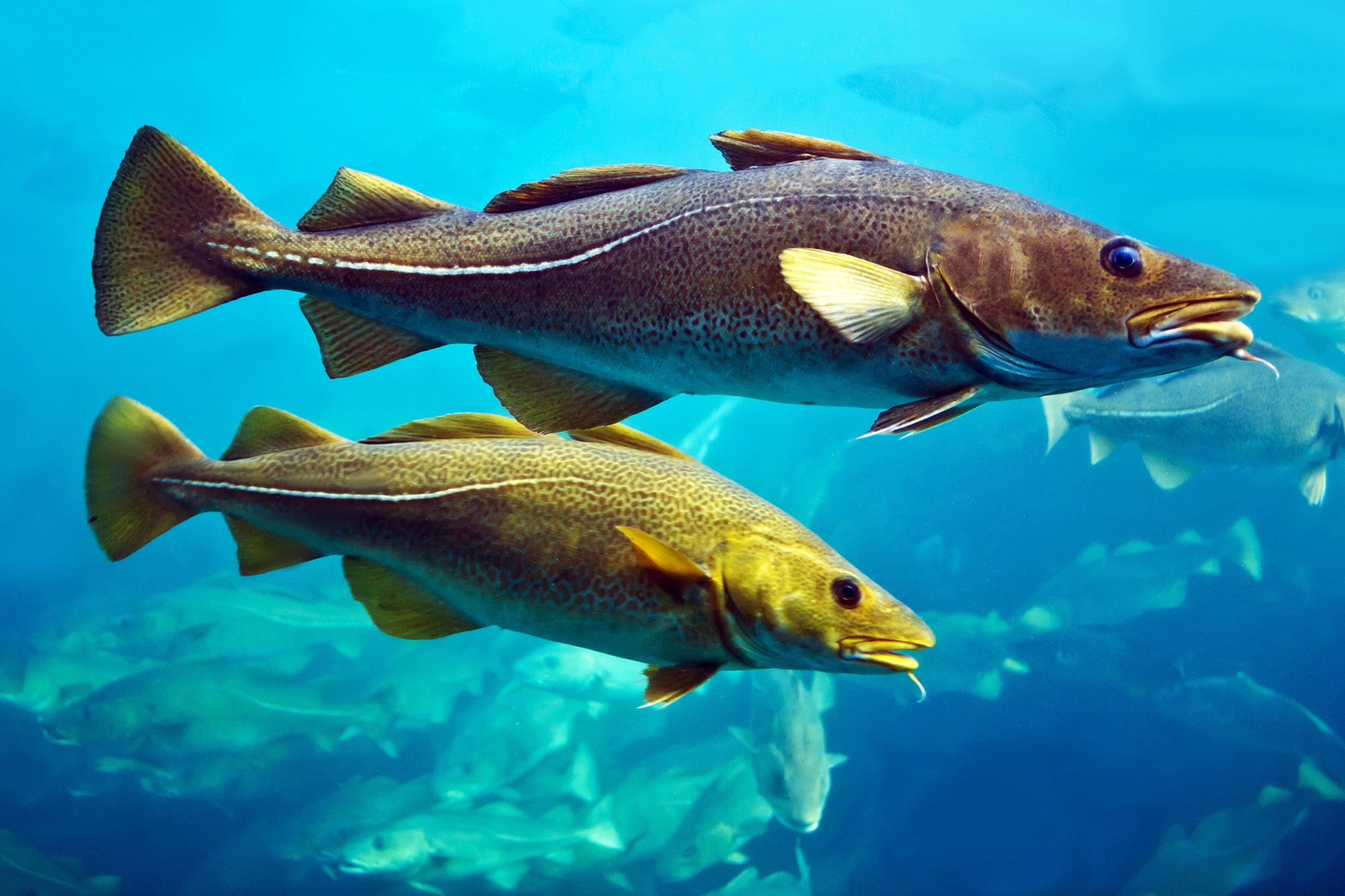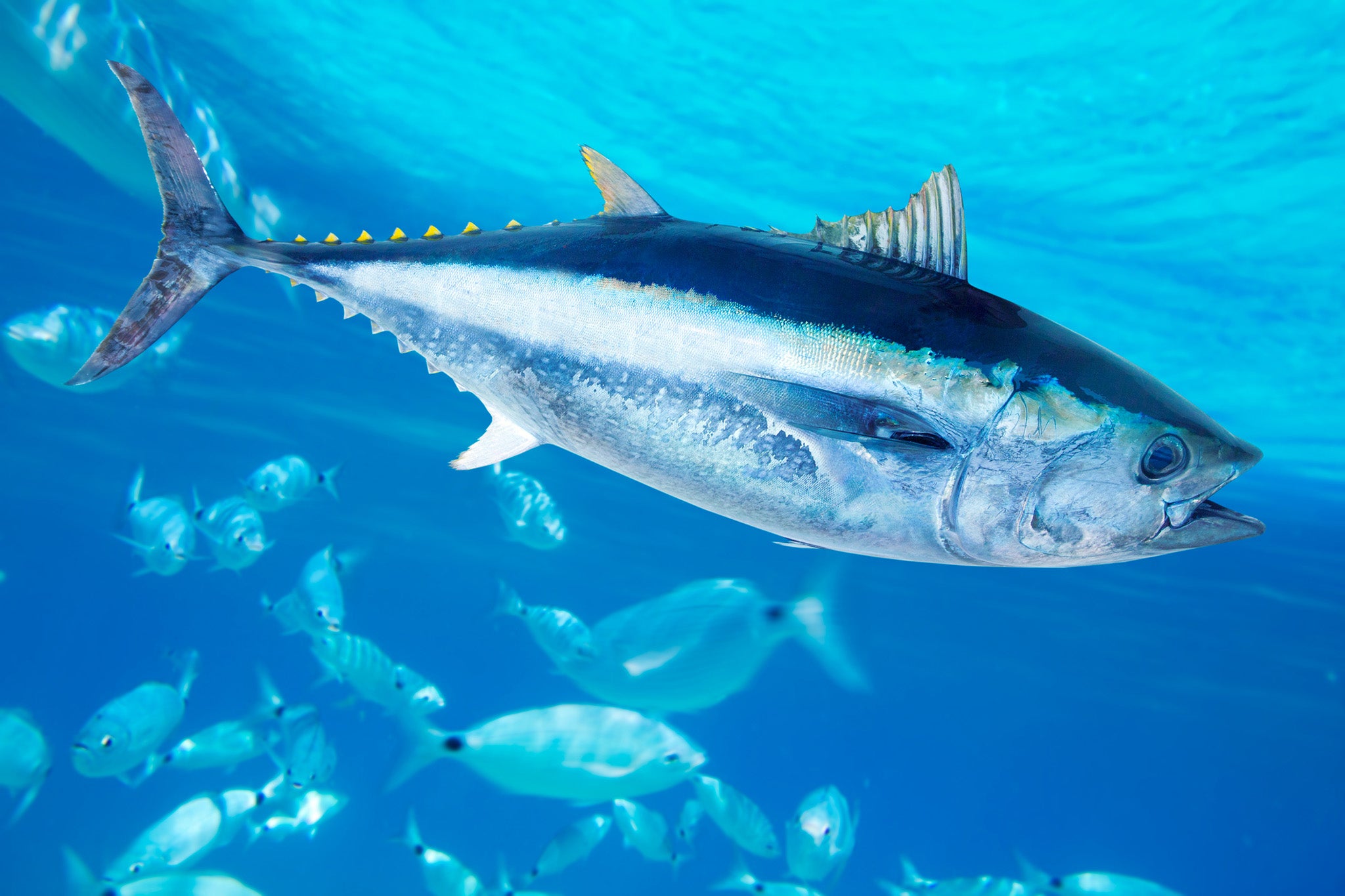
Rapidly warming seas around Britain are resulting in highly visible shifts in the species living in our waters, creating fishing challenges and opportunities which could affect what we eat in future.
British waters are in the grip of a marine heatwave, which has seen record average temperatures over the first seven months of the year, according to analysis of Met Office data carried out by the BBC.
An intense heatwave in May elevated UK waters by up to 4C, and the broader effects of the global climate crisis indicate that such warming is likely to continue.
Experts told The Independent that the warming seas are bringing an abundance of new species to British waters, including jellyfish, spider crabs, sardines, anchovies, bluefin tuna and an unexpected influx of octopus.
Meanwhile, numbers of brown crabs are down, and traditionally-fished species like cod and haddock are in short supply as they move further north to cooler waters.

Mike Roach, deputy chief executive of the National Federation of Fishermen's Organisations (NFFO) told The Independent climate change means "our seas are changing".
"We do have a species distribution shift, we're seeing bluefin tuna in increasing numbers, and we have an octopus bloom which we're seeing on the south coast as well. These are all potentially linked to climate change and warming seas.
"For our industry it brings opportunities and challenges. Bluefin tuna is an absolute opportunity. It's well-controlled and regulated, the fishermen have been involved in the scientific data collection and management proposals. The octopus are also providing a great opportunity. It's allowed the fishermen to offset some of their economic losses from the crab populations going down. This is a climate-driven effect."
So is the UK's national dish of fish and chips in danger as warmer waters chase cod away?
Professor John Pinnegar, the lead adviser on climate change at Cefas, the government's marine and freshwater science agency, told The Independent: "most people don't realise that nearly all of the cod and haddock we eat in Britain is imported. It has been really since the 1930s. That's going to continue to be the case. A lot of the fish we catch around the UK, like mackerel and langoustines, are exported to countries further south."

He added: "So we import the things we like to eat from countries further north, and we export what we catch to countries further south."
However, the decline of cod around our shores means that despite being able to import them to keep fish and chip shop menus looking familiar, what British fishers are actually landing is changing.
"We're generally seeing a lot more cephalopods – cuttlefish, octopus and squid – than has been the case in the past," Professor Pinnegar said. "So all around the UK, particularly in the North Sea, fisheries are starting to target them more than they used to.
"Some of our traditional target species, like cod and haddock have been restricted, so lots of fishers are fishing for squid."
Squid and chips doesn't have quite the same ring to it, but experts warn that tastes in Britain are too limited to traditional fish species.
"The British public are hooked on the top five (cod, haddock, salmon, tuna and prawns), and we land more than 50 different species in the UK," said Mr Roach. "If we were eating a diversity of species that are seasonal and caught in UK waters, then that would offset these regime shifts we're seeing."
How scientists solved one of the greatest ocean mysteries
Amber heat health alert for parts of England amid warning ‘rise in deaths likely’
Mapped: Where will temperatures soar in UK during fourth heatwave of the year?
JD Vance’s holiday brings ‘circus’ of police patrols to sleepy Cotswolds village
Amber heat warnings issued across England with temperatures set to soar
Two girls arrested after historic hotel destroyed in suspected arson attack







